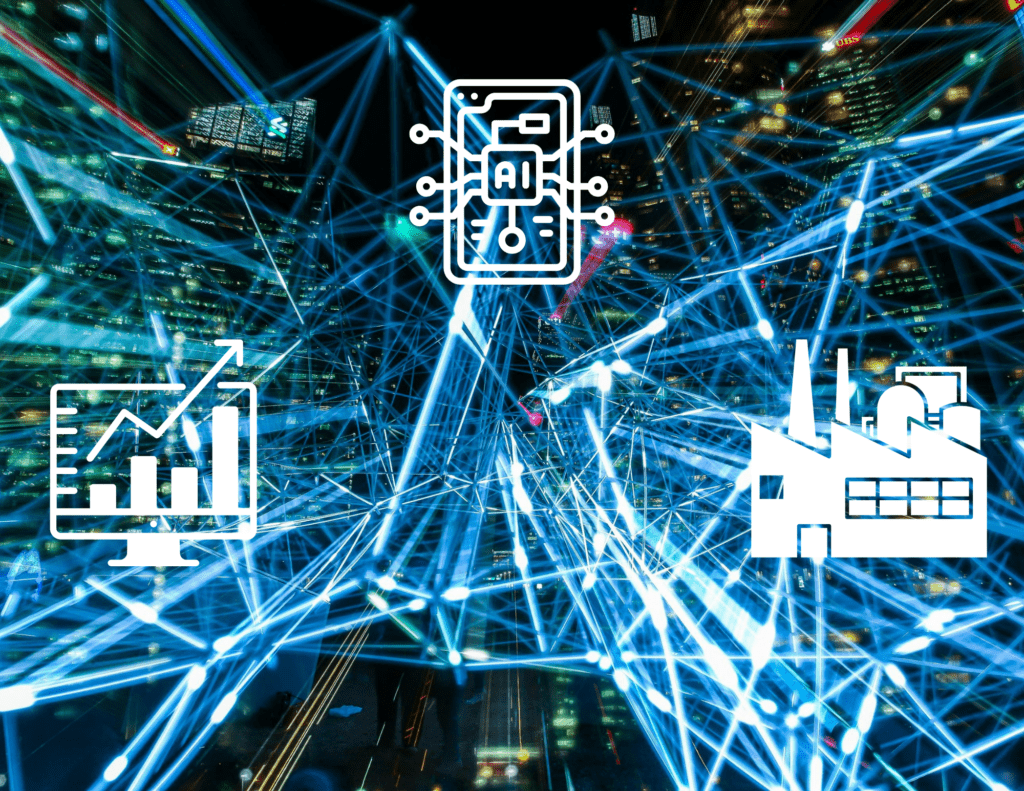Artificial Intelligence (AI) has moved far beyond its roots in simple automation. Today, AI beyond automation is reshaping industries, driving innovation, and solving complex problems that were once thought to be the exclusive domain of human intelligence. From enhancing customer experiences with intelligent chatbots to revolutionizing healthcare with predictive diagnostics, AI is proving to be a transformative force. In this article, we explore how AI beyond automation is being applied across various sectors—such as manufacturing, creative industries, and advanced analytics—and what it means for the future of business and society. As we delve into these applications, we’ll also address the ethical considerations that come with this powerful technology, ensuring that its growth benefits everyone.
AI in Customer Engagement: The Rise of Chatbots
Chatbots are one of the most recognizable examples of AI beyond automation, transforming how businesses interact with customers. Powered by natural language processing (NLP), chatbots simulate human-like conversations, providing instant responses to queries.
For instance:
- E-commerce platforms use AI-driven chatbots to guide users through purchasing processes, answer FAQs, and even recommend products based on browsing history.
- Banking and financial services employ chatbots to assist with account management, loan inquiries, and fraud detection.
AI chatbots enhance customer experiences by delivering 24/7 support, reducing wait times, and personalizing interactions.
AI in Advanced Analytics: Driving Decision-Making
Advanced analytics is where AI truly shines, enabling businesses to make informed decisions based on large datasets. Machine learning (ML) algorithms analyze patterns, uncover hidden insights, and predict future trends.
Key applications include:
- Predictive Analytics: AI forecasts customer behavior, enabling targeted marketing campaigns and personalized product recommendations.
- Risk Assessment: Financial institutions use AI to evaluate creditworthiness, detect fraudulent activities, and manage investment risks.
- Supply Chain Optimization: AI helps predict demand, optimize inventory, and improve logistics efficiency.
AI-driven analytics empower businesses to act proactively, boosting efficiency and profitability.
AI in Healthcare: Revolutionizing Diagnosis and Treatment
In the healthcare sector, AI is saving lives and improving patient outcomes. From diagnosing diseases to personalizing treatment plans, its applications are profound.
- Medical Imaging: AI algorithms analyze X-rays, MRIs, and CT scans, detecting abnormalities like cancerous tumors with remarkable accuracy.
- Drug Discovery: AI accelerates the drug development process by predicting the efficacy of compounds and identifying potential candidates for trials.
- Telemedicine: AI-powered platforms enable virtual consultations, remote patient monitoring, and automated health advice.
These advancements reduce costs, enhance diagnostic accuracy, and expand access to medical care globally.
AI in Manufacturing: Beyond Robotics
While industrial automation relies on robotics, AI beyond automation introduces a layer of intelligence that revolutionizes production lines.
- Predictive Maintenance: AI monitors equipment health, predicting failures before they occur and minimizing downtime.
- Quality Control: Computer vision systems powered by AI detect defects in products at a microscopic level.
- Supply Chain Management: AI optimizes production schedules and ensures raw materials are available when needed.
By integrating AI, manufacturers achieve higher productivity, reduced waste, and improved product quality.
AI in Creative Industries: From Art to Content Creation
AI isn’t limited to numbers and logic—it’s also inspiring creativity.
- Art and Design: AI tools like DALL-E and MidJourney generate stunning visuals, enabling designers to explore new concepts quickly.
- Music and Writing: AI platforms compose music, draft articles, and even assist with screenwriting.
- Gaming: AI creates dynamic, responsive NPCs (non-player characters) and designs immersive worlds.
In creative industries, AI serves as a collaborator, helping artists and creators push the boundaries of innovation.
AI and Ethical Considerations
While AI offers immense potential, it also raises ethical concerns. Issues such as bias in algorithms, data privacy, and job displacement must be addressed responsibly.
Organizations must:
- Ensure transparency in AI systems.
- Invest in upskilling workers for an AI-driven future.
- Establish guidelines for ethical AI use.
Conclusion: The Future of AI
AI is not just a tool for automation; it is a catalyst for transformation across industries. From enhancing customer engagement to driving advanced analytics, revolutionizing healthcare, and inspiring creativity, AI’s potential is limitless. As businesses and individuals harness its power, they must also navigate the challenges it presents, ensuring that AI is used ethically and inclusively. By doing so, we can unlock a future where technology truly works for the betterment of society.


